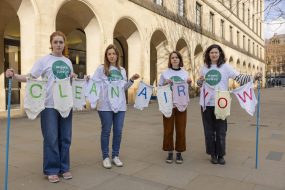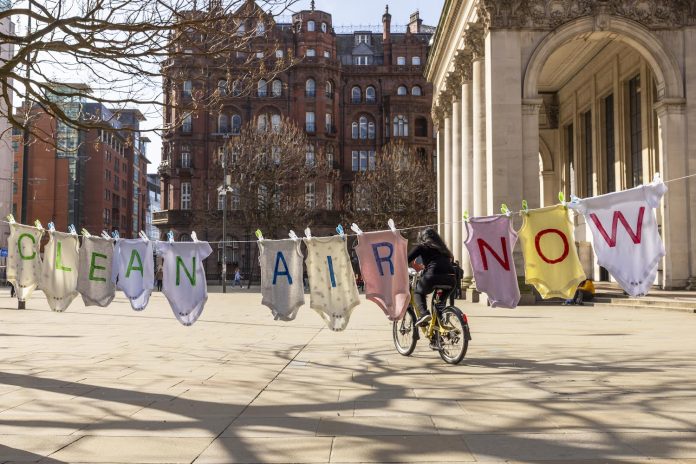 A group of parents and an NHS GP are warning that the NHS faces a ‘health emergency’ as the number of children being hospitalised in Manchester for respiratory conditions has nearly doubled in the last two years.
A group of parents and an NHS GP are warning that the NHS faces a ‘health emergency’ as the number of children being hospitalised in Manchester for respiratory conditions has nearly doubled in the last two years.
According to Public Health England, Greater Manchester has the highest proportion of children under 19 being hospitalised for asthma.
It is 65% worse than the England average, with 3,810 children admitted in 2022/23 across the city area.
The issue is getting worse. New figures obtained by Mums for Lungs under the Freedom of Information Act, show that the number of paediatric respiratory admissions has increased from 684 in 2021 to 1,345 in 2023, the latest figures that are available, an increase of 97%.
Tameside in Greater Manchester has the highest rate of asthma hospital admissions for children under 19 of any English combined authority outside of London, according to Public Health England, closely followed by Oldham and Manchester city centre.
Liz Godfrey, a parent of two, who runs the Manchester Mums for Lungs group, said:
“This is a health emergency and it is devastating to see that more children than ever are admitted to hospital with respiratory illnesses. Pollution levels across Greater Manchester contribute to stunted lung growth and asthma. We urge Andy Burnham and the Government to come together and sort out Manchester’s air pollution – so everyone can breathe more easily!”
Parents who are part of the ‘Mums for Lungs’ campaign group organised a campaign event in central Manchester this week to highlight the particular risk to children and babies lungs.
Parents hung a washing line featuring baby clothes with the message ‘Clean Air Now’. They will be campaigning in St Peter’s Square, Manchester.
According to researchers, some parts of Manchester are 1.3 times the current UK legal limit and more than five times over the recommended World Health Organisation limits for air pollution.
Dr Sinead Millwood, an NHS GP at the Hawthorn Medical Centre in Levenshulme, said:
”From the early stages of development even in the womb, children are one of the most sensitive groups to air pollution because they are still growing and their immune systems are not able to fight it yet. It affects their developing brains, reducing their ability to learn. It stunts their lung growth and causes and exacerbates asthma and lung infections. I often see kids with these preventable illnesses and wish our leaders would take the action needed to address this.”
A GP examines a child (pic credit: PickPic)
The high levels of air pollution reflect a big growth in the number of cars on the roads, with an extra 400,000 vehicles in Manchester according to the most recent statistics from the Department of Transport.
Between 2012 and 2022, the number of cars on the roads of Greater Manchester increased by 41 per cent (1.06 million to 1.46 million).
Road transport is the largest contributor to illegal levels of air pollution in Greater Manchester and it’s thought that air pollution contributes to 1,200 early deaths each year in Greater Manchester.
Liz Godfrey, mum of two, campaigns for cleaner air in Manchester (pic credit: Mums for Lungs)
The worst rate of asthma amongst children and young people in Greater Manchester is in Trafford West, where the rate of admissions is 9%, which is nearly 40% worse than the England average, and the 9th worst in the entire country.
Mums for Lungs are calling for the Mayor and local councils to take action on air pollution, including a plan to reach the WHO targets on air pollution where NO2 should not exceed 10μg/m3 as an annual mean, and PM2.5 should not exceed 5μg/m3, led by a dedicated Clean Air Cabinet member across Greater Manchester.
The parents are also calling for more action on wood burning, including additional efforts to issue penalty fines and for at least a quarter of all primary schools in the borough implementing a School Street over the next five years







